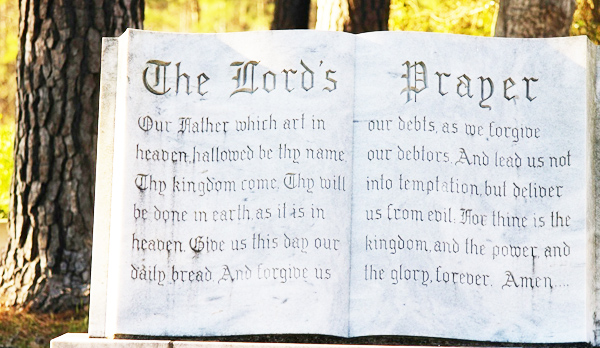
Your kingdom come (Luke 11:2).
In my last post I began a series of brief meditations on the Lord’s Prayer. The prayer begins with the request for God’s name to be hallowed, followed immediately with the prayer for his kingdom to come. When we ask for God’s kingdom to come, we are reminded that not only is God’s name and glory to come first — but also God’s desires, his will, his purposes, and his authority. We are asking not only for God to be known as king, but for God to be joyfully obeyed as king!
The kingdom of God and of his Christ is represented in Scripture as 1) eternal, 2) recently accomplished, 3) current and growing, and 4) still to come.
Eternal: The kingdom of God is drastically different than any and other kingdom of men that have ever, and will ever exist. Kingdoms of men will always will be temporary, fallible, and limited. In contrast, God’s kingdom will always be absolute, eternal, and perfectly righteous (1 Chronicles 29:11-12).
God is always and actively ruling over every inch of his creation; yet we are not always willing subjects in his eternal kingdom.
This reality is in direct opposition to the propaganda of our (and every) age, which claims Christ’s kingdom is limited, out-of-date, and faulty. The request for God’s kingdom to come, then, is not a request — as open theology might imply — that God get a handle on his own, chaotic universe. God is always and actively ruling over every inch of his creation; yet we are not always willing subjects in his eternal kingdom.
Recently accomplished: Salvation is described as being brought out of one kingdom, into another (Colossians 1:13). There are only two kingdoms in this world, ultimately, and we are either in one or in the other! We are either serving Jesus or we are serving Satan; there is no middle ground.
Our heart’s desire — and therefore our daily prayer — should be for the salvation of everyone around us. We pray, “Your kingdom come,” because we long to see people delivered from self-destruction and into the joyful liberty of service to their benevolent God and Savior.
We are either serving Jesus or we are serving Satan; there is no middle ground.
In this sense, we are praying for the advancement of God’s kingdom, according to God’s purpose, through the salvation of all peoples. And the bigness of this request reminds us that God is able to save, not only with a teaspoon, one and two at a time near to us, but also with a tsunami, hundreds of thousands across the globe.
Current and growing: In Matthew 6:33, Jesus instructs us to seek first the kingdom of God, rather than pursuing lesser things like food or clothing as major priorities. Clearly, then, we are to seek God’s rule in and over our lives here and now.
A kingdom must have a king, so we are inviting Christ to rule over our lives.
A kingdom must have a king, so we are inviting Christ to rule over our lives. In this sense, his kingdom comes — is present in and growing — in ever place and person that is submitting to Christ as king.
Still to come: Finally, Jesus makes it clear that there is a sense in which his kingdom is now-but-not-yet. As Christians, we look expectantly for the second coming of Christ and the consummation of all things (Revelation 22:20). In almost every parable of Jesus, he emphasizes the importance of looking for the coming bridegroom, landlord, or master.
“Your kingdom come,” then, will be on the lips of every Christian, in every age, until Christ himself returns to perfect all things.